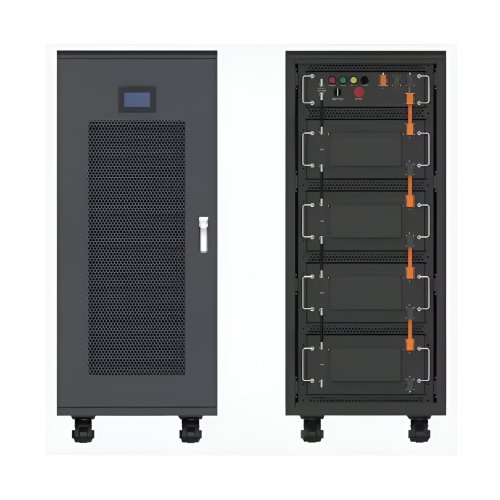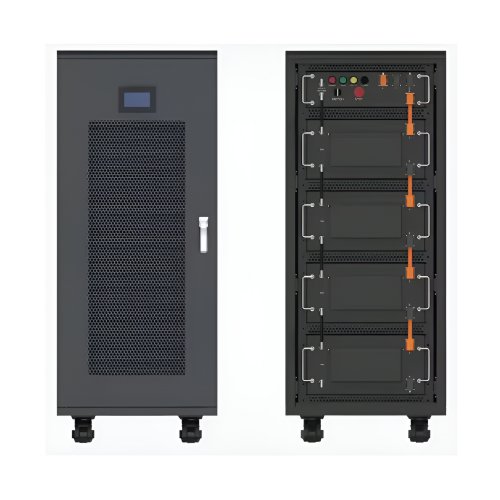Research And Development Breakthroughs News: Ai And Biotechnology Spearhead A New Era Of Innovation
The global research and development (R&D) landscape is currently experiencing a period of unprecedented acceleration, marked by a series of transformative breakthroughs that promise to redefine industries and address some of humanity's most pressing challenges. The convergence of artificial intelligence (AI), advanced biotechnology, and novel materials science is creating a powerful synergy, driving progress at a pace that is reshaping traditional R&D timelines and strategies.
Latest Industry Dynamics: From Labs to Real-World Impact
In recent months, the most significant announcements have emerged from the intersection of AI and life sciences. AlphaFold 3, the latest iteration of DeepMind’s revolutionary AI system, has stunned the scientific community. Unlike its predecessor, which accurately predicted protein structures, AlphaFold 3 can model the interactions of nearly all of life’s molecules—including proteins, DNA, RNA, ligands, and complex molecular machines. This breakthrough is not merely an academic exercise; it is rapidly being integrated into the drug discovery pipelines of major pharmaceutical companies. By dramatically accelerating the process of identifying viable drug candidates and understanding disease mechanisms, this technology is poised to cut years off the development timeline for new therapeutics, particularly for complex conditions like cancer and neurodegenerative diseases.
Concurrently, the field of renewable energy is witnessing pivotal R&D successes. Teams in the United States and Europe have reported new efficiency records for perovskite-on-silicon tandem solar cells, pushing conversion rates beyond 33% in laboratory settings. This is a critical milestone, offering a tangible path to solar power that is significantly more efficient and potentially cheaper than current commercial solutions. Furthermore, progress in solid-state battery technology is addressing the primary limitations of electric vehicles (EVs) and grid storage. Companies like Toyota and QuantumScape have released promising data on prototypes that offer higher energy density, drastically reduced charging times, and improved safety by eliminating liquid electrolytes. These developments suggest that the mass adoption of EVs and the viability of large-scale renewable energy storage are closer than previously anticipated.
Trend Analysis: The Pervasive Role of AI and a Shift Towards Open Collaboration
The dominant trend underpinning these breakthroughs is the pervasive integration of AI and machine learning across all R&D sectors. AI is no longer just a tool; it is becoming a fundamental partner in the research process. In materials science, AI algorithms are capable of screening millions of potential chemical compositions to identify candidates for new alloys, polymers, or catalysts with specific desired properties, a process that would be impossibly time-consuming for human researchers alone. This "AI-first" approach to R&D is minimizing trial and error, optimizing experiments, and unlocking discoveries that might otherwise have remained hidden.
Another evolving trend is the shift in R&D models. While proprietary research remains vital, there is a growing emphasis on open innovation and pre-competitive collaboration. Consortia of industry players, academic institutions, and government agencies are pooling resources to tackle foundational challenges too large for any single entity. This is particularly evident in semiconductor research, where the need to develop next-generation chip architectures and advanced packaging technologies has led to new collaborative ventures aimed at maintaining the pace of Moore's Law.
The sustainability imperative is also acting as a powerful forcing function for R&D direction. Breakthroughs are increasingly measured not only by their technical novelty but also by their environmental impact. This is driving innovation in circular economy technologies, such as enzymatic recycling of plastics and the development of carbon-negative industrial processes, transforming waste management and manufacturing from within.
Expert Perspectives: Cautious Optimism and a Focus on Translation
Experts are viewing this surge of innovation with a mixture of excitement and measured caution. Dr. Eleanor Vance, a senior fellow at the Global Institute for Technology Advancement, notes, "The current pace of discovery, particularly in AI-driven fields, is extraordinary. However, the critical challenge remains the 'valley of death'—translating laboratory breakthroughs into scalable, manufacturable, and commercially viable products. Our focus must now expand to include equal investment in translational engineering and supply chain development."
Meanwhile, Professor Kenji Tanaka, a leading biotechnologist, emphasizes the ethical dimension of these advancements. "The power of tools like AlphaFold 3 and advanced gene editing is immense. The global research community has a responsibility to establish robust ethical frameworks and international agreements to ensure these technologies are developed and deployed responsibly. The goal is not just to see what wecando, but to carefully decide what weshoulddo."
Industry leaders are also adjusting their strategies. "The R&D function is becoming more integrated and agile," says Maria Rodriguez, Chief Technology Officer at a major materials firm. "Cross-disciplinary teams—combining data scientists, biologists, and chemical engineers—are now the standard. This breakdown of silos is essential for fostering the serendipitous connections that lead to true breakthroughs."
In conclusion, the R&D sector is in the midst of a profound transformation. Breakthroughs in AI, biotechnology, and energy are not isolated events but are part of a broader, synergistic wave of progress. While challenges in commercialization and ethical governance persist, the current trajectory points toward a future where R&D continues to be the primary engine for economic growth and a key contributor to solving global challenges in health, energy, and sustainability.
Customized/OEM/ODM Service
HomSolar Supports Lifepo4 battery pack customization/OEM/ODM service, welcome to contact us and tell us your needs.


HomSolar: Your One-stop LiFePO4 Battery Pack & ESS Solution Manufacturer
Our line of LiFePO4 (LFP) batteries offer a solution to demanding applications that require a lighter weight, longer life, and higher capacity battery. Features include advanced battery management systems (BMS), Bluetooth® communication and active intelligent monitoring.

Customised Lithium Iron Phosphate Battery Casing
ABS plastic housing, aluminium housing, stainless steel housing and iron housing are available, and can also be designed and customised according to your needs.

HomSolar Smart BMS
Intelligent Battery Management System for HomSolar Energy Storage System. Bluetooth, temperature sensor, LCD display, CAN interface, UART interface also available.


Terminals & Plugs Can Be Customized
A wide range of terminals and plugs can be customised to suit the application needs of your battery products.

Well-designed Solutions for Energy Storage Systems
We will design the perfect energy storage system solution according to your needs, so that you can easily solve the specific industry applications of battery products.



About Our Battery Cells
Our energy storage system products use brand new grade A LiFePO4 cells with a battery lifespan of more than 4,000 charge/discharge cycles.



Applications in Different Industries
We supply customized & OEM battery pack, assemble cells with wiring, fuse and plastic cover, all the cell wires connected to PCB plug or built BMS.
Applications: E-bike, Electric Scooter, Golf Carts, RV, Electric Wheelchair, Electric Tools, Robot Cleaner, Robot Sweeper, Solar Energy Storage System, Emergency Light, Solar Power Light, Medical Equipment, UPS Backup Power Supply.
We can provide you with customized services. We have the ability to provide a vertical supply chain, from single cells to pack/module and to a complete power solution with BMS, etc.


HomSolar (Shenzhen) Technology Co., Ltd
























